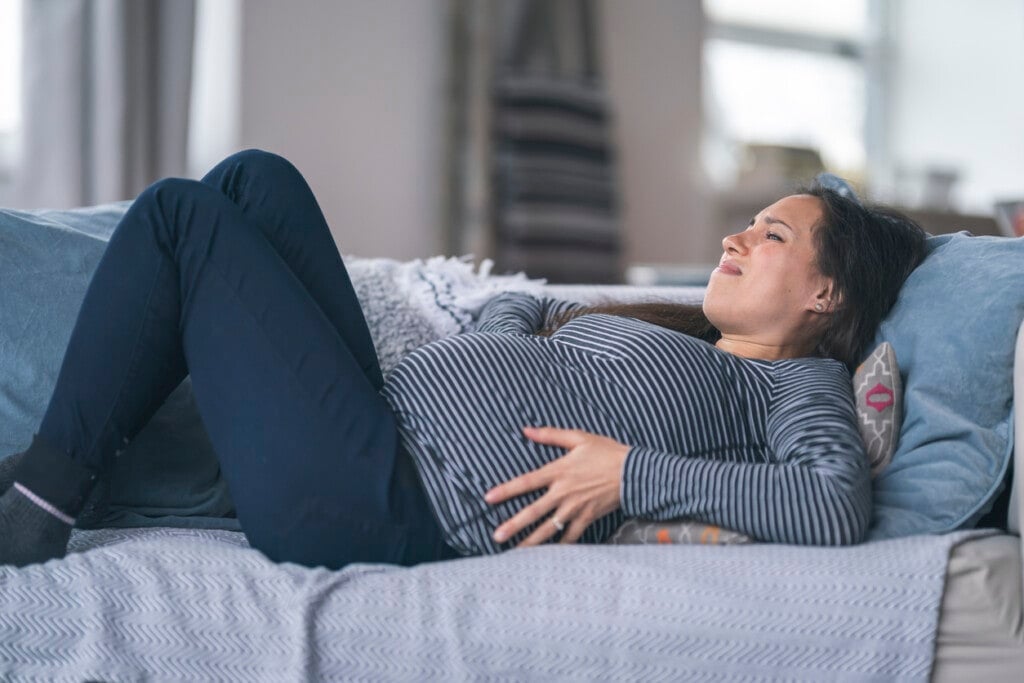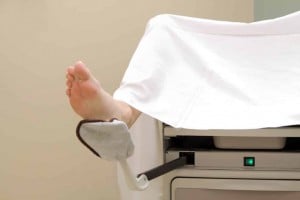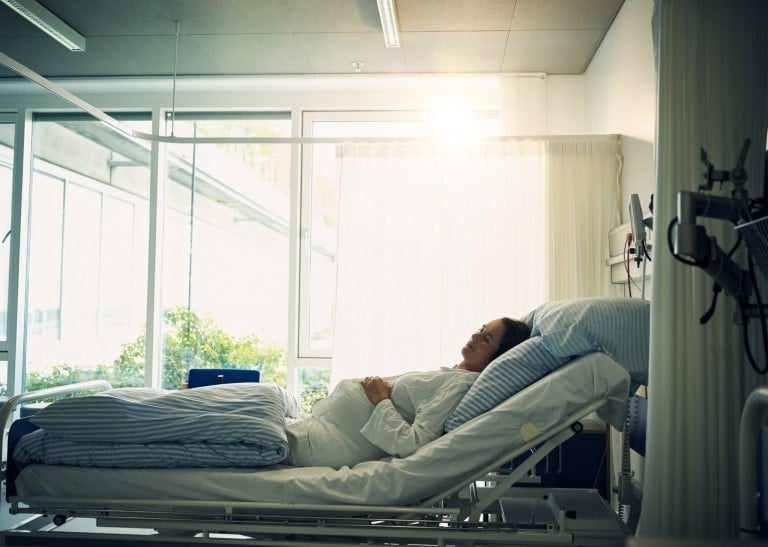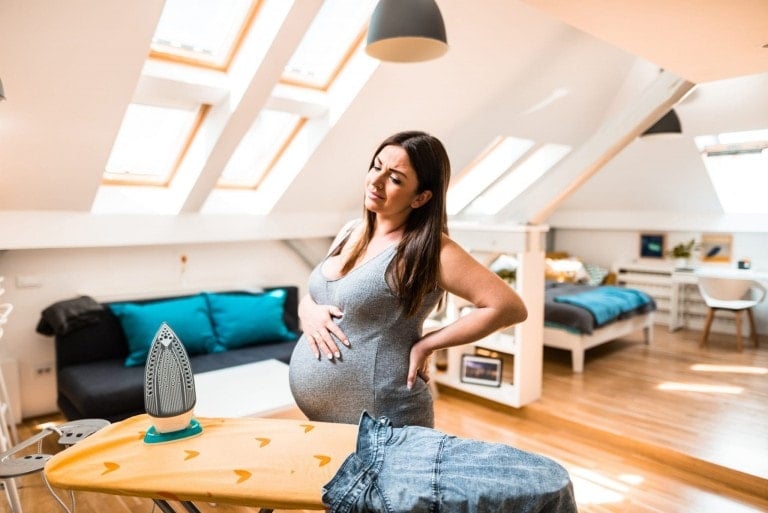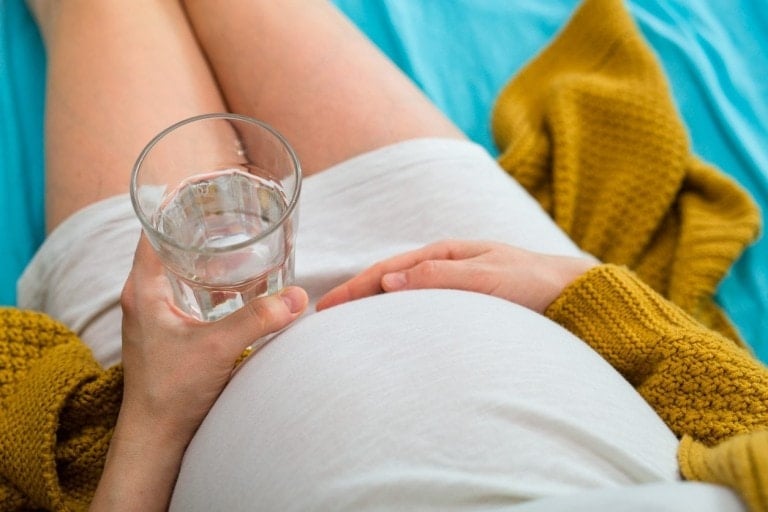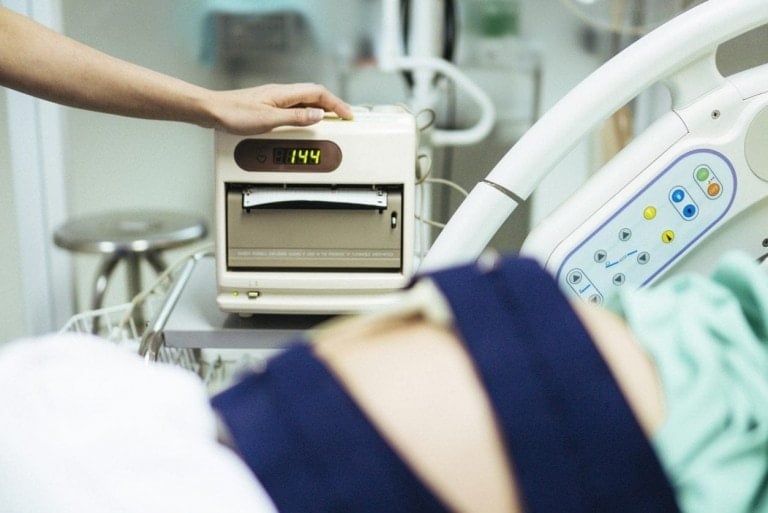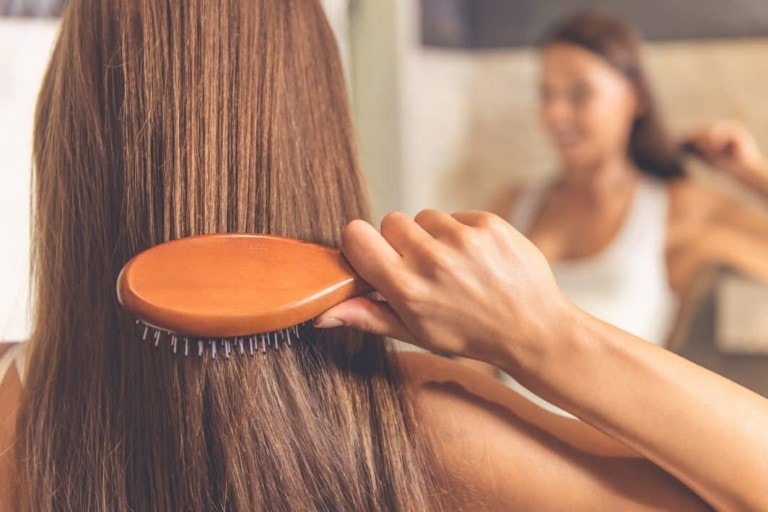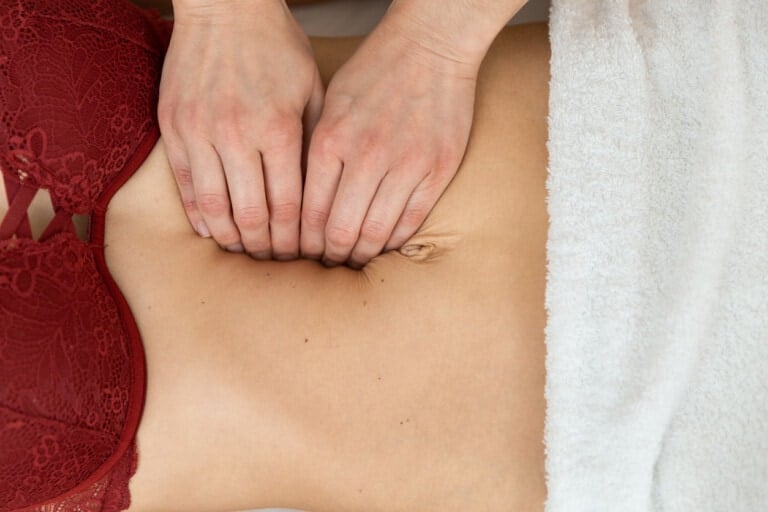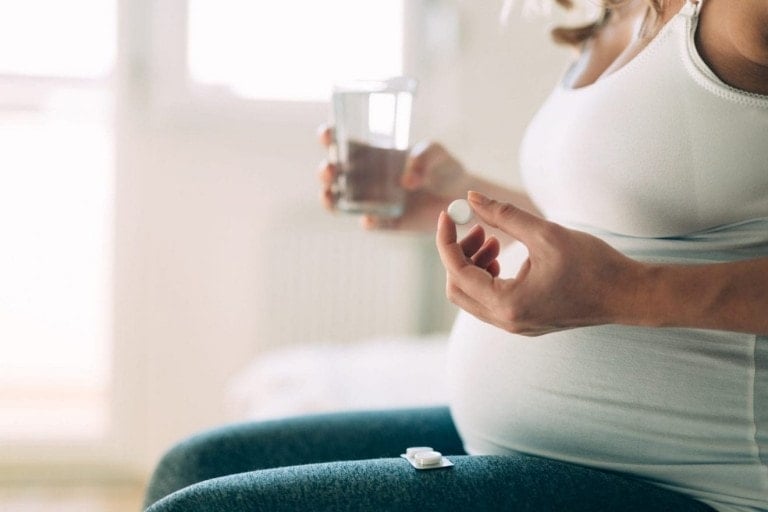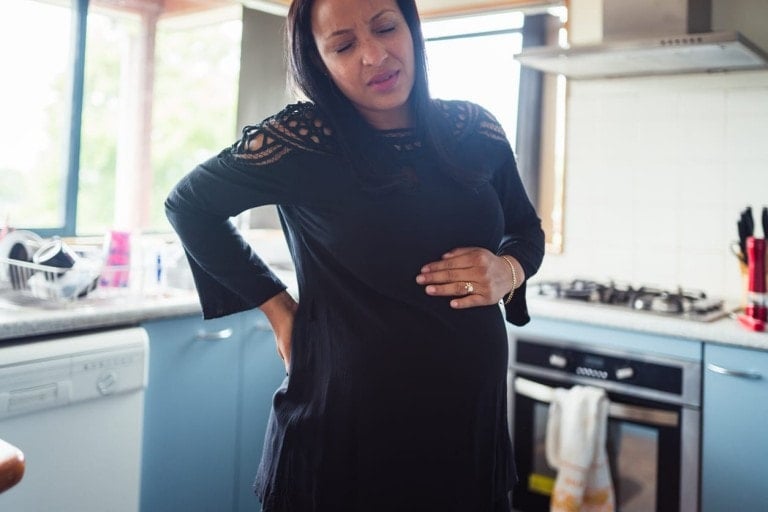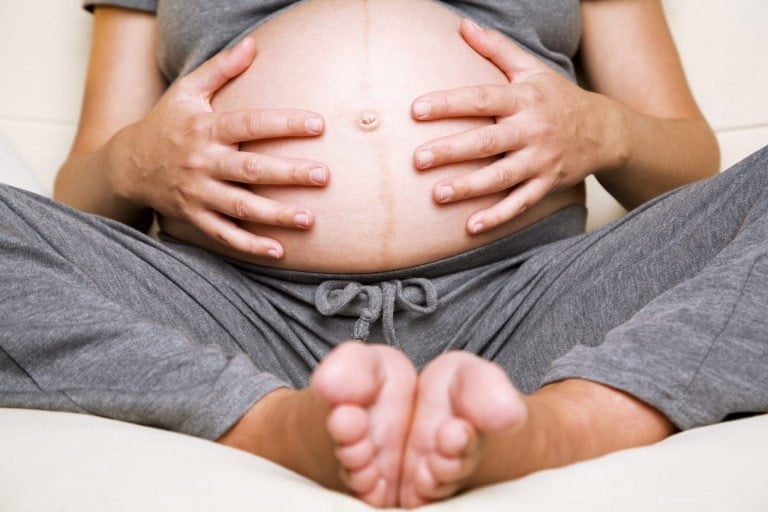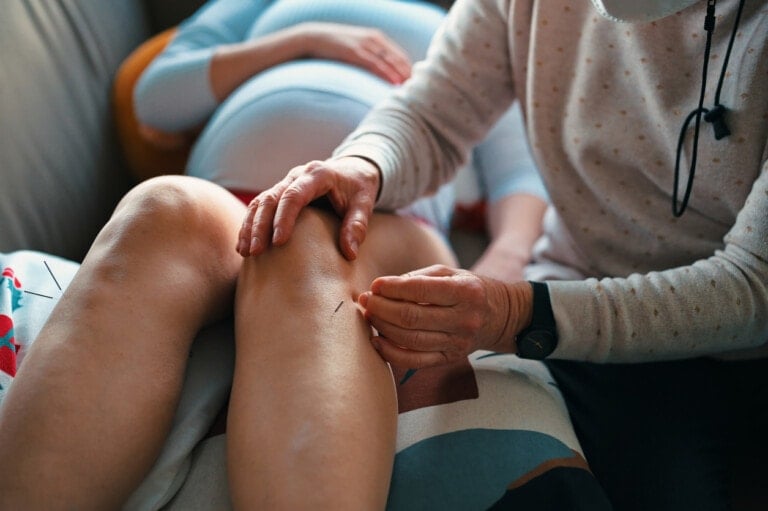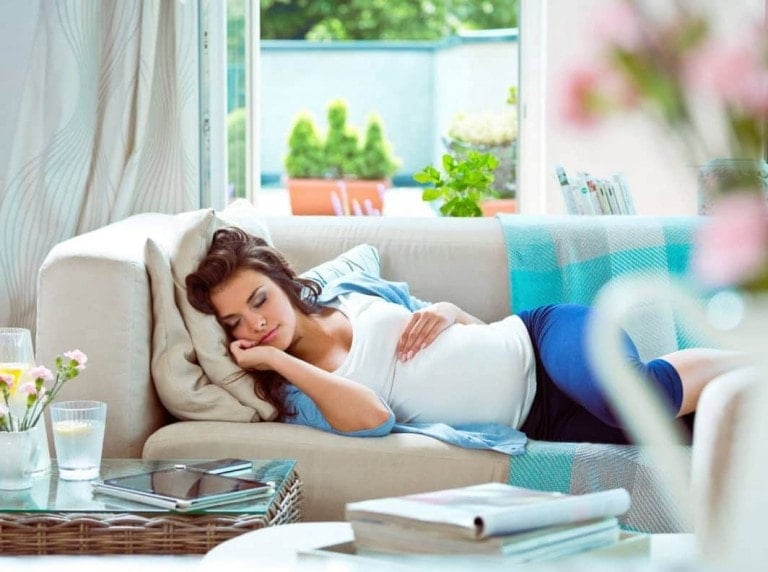Pregnancy can be physically uncomfortable for many women, from the early pregnancy symptoms of uterine cramps and morning sickness to the aches and pains of the third trimester. One area that can be particularly sore or painful as pregnancy progresses is the pubic bone. Pubic bone pain is even more challenging because of the limited options for pain medication during pregnancy.
Women are left to suffer from pubic bone pain without many options for relief. But there are ways to address and minimize pubic bone pain during pregnancy. You may be feeling pelvic pain and wonder if this is what you are experiencing. Here we will look at what pubic bone pain is, what causes it, and some ways to relieve it.
What Is Pubic Bone Pain During Pregnancy?
Pubic bone pain is also known as symphysis pubis dysfunction or pelvic girdle pain. The pelvic girdle is the ring of bones at the bottom of your torso. It includes your lower back, your hips, and your pelvis. Pubic bone pain can refer to soreness or aching anywhere in this region during pregnancy or postpartum.1
What Does Pubic Bone Pain Feel Like?
Pubic pain during pregnancy ranges from mild to severe, and women report different sensations and experiences with how it feels. It may feel like a shooting pain in the pubic bone, particularly where the left and right sides of the hip bone meet at the front at the center of your groin. The pain may also radiate to the abdomen, the back, or down the legs.2
Pubic bone pain may worsen with movement like walking, climbing up or down stairs, rolling over in bed, or standing on one leg. The pain may also cause sex to be painful during pregnancy.2
A feeling of clicking, grinding, or snapping in the pubic bone region may accompany the pain. Sometimes this can even be heard by others. It is usually at least somewhat relieved by rest.1,2
Pubic bone pain usually begins in the second or third trimester and may worsen as the pregnancy progresses.2,3
What Causes Pubic Bone Pain?
There are a few contributing factors to why pubic bone pain occurs during pregnancy. Physical changes and hormonal influences are both at play.
Biomechanics
As the uterus enlarges during pregnancy, your center of gravity shifts upward and forward. This increases pressure on the low back and pelvis, which can cause pain. Many women inadvertently alter their posture or how they carry themselves during pregnancy to compensate for this increased weight. You may find yourself arching your low back and sticking out your belly or waddling instead of your normal gait. This also contributes to pubic pain.3
Hormones
Certain hormones increase during pregnancy to help accommodate your growing belly and prepare your body for birth. Relaxin and progesterone work to relax your uterus and joints so that implantation, growth, and birth can occur. However, this may also contribute to hypermobility in the pelvis. Joints become more mobile during pregnancy, and the ligaments connecting the pelvic bones loosen in preparation for birth. This can cause balance issues as well as pain.2,4,5
How To Relieve Pubic Bone Pain
If you are experiencing pubic bone pain during pregnancy, you might wonder what you can do about it. While it may not be completely relieved until after you deliver your baby, there are actions you can take to lessen the pain you experience.
Activity Modification
Take notice of which daily activities aggravate your pubic pain. Many women experience exacerbations of pubic pain while standing on one leg, such as getting dressed or getting into and out of a car or bed.
Sit while doing these activities instead of standing or stepping one leg at a time. Reduce weight-bearing activities such as standing or walking for long periods and climbing stairs. If possible, avoid wearing high-heeled shoes.3
Posture
Be attentive to your posture. Avoid arching your low back or sticking your bump out when standing. Instead, slightly tuck your bottom and belly to flatten your low back. Consider the use of a wedge-shaped pillow when sitting. You can also sleep on your side with a pillow between your knees and under your belly to maintain good alignment.1,2,3
Temperature

You can try applying heat or ice to the painful areas to relieve pubic bone pain during pregnancy. When applying heat, use the lowest possible temperature setting for no longer than 20 minutes at a time to avoid affecting your baby’s body temperature. Some people report relief with alternating heat and ice.2,3
Wear a Support Belt

Support garments or stabilization devices that provide compression or pressure to the hips, pelvis, and low belly may help relieve pubic bone pain during pregnancy. These may work by decreasing hypermobility in the pubic joints and reducing some of the weight of the uterus. However, studies vary on how effective these belts are.2
Exercise and Physical Therapy
A physical therapist who specializes in pregnancy may be able to demonstrate specific exercises to strengthen your muscles to support loosened ligaments. In particular, strong abdominal and pelvic floor muscles can support the spine and improve balance and posture, decreasing the strain on the lower back.1,2
Strong glutes, hamstrings, hip muscles, and even calves are vital. Stretching and muscular flexibility can be just as important as strength. Water aerobics may be a particularly beneficial exercise during pregnancy to relieve pubic bone pain.2
Acupuncture
Acupuncture has been shown to help reduce pelvic girdle pain during pregnancy. Be sure to seek out an acupuncturist who specializes in fertility, pregnancy, and pain.6,7
Transcutaneous Electrical Nerve Stimulation (TENS)
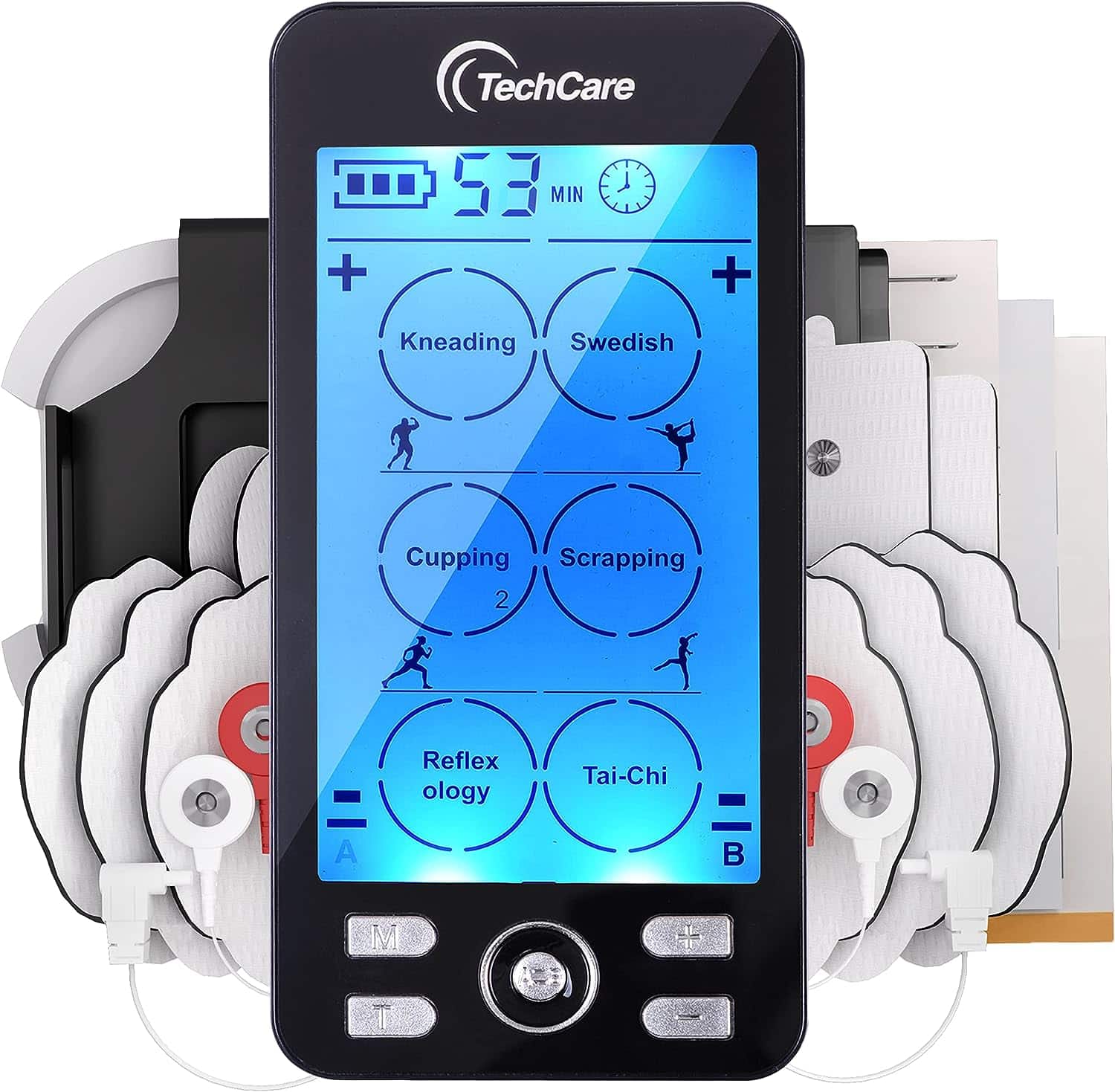
A TENS unit is sometimes used as a non-medicinal pain relief method during labor. It has also been effective at lessening pubic bone pain during pregnancy. The electrodes can be placed over the areas of pain for 30 minutes per day, and the stimulation should be strong but comfortable. Consult your doctor or a physical therapist to ensure the safety of using this intervention for you and your baby. A TENS unit could be worth the investment and serve multiple purposes throughout pregnancy, labor, and delivery.7
Chiropractic Care
Consider seeing a chiropractor who specializes in pregnancy-related issues. They may help realign your joints to decrease pain and improve posture.1,8
Talk to Your Provider About Pubic Bone Pain
If your pubic pain during pregnancy is severe or interfering with daily activities, talk to your doctor about medications that can help. Acetaminophen (Tylenol) is considered safe during pregnancy and may take the edge off your pain. Your doctor may also be able to prescribe other pain medications to help. Remember that ibuprofen should not be used for pain relief during pregnancy.9
Pubic bone pain during pregnancy can be frustrating and challenging to deal with. While many women suffer through it, there are ways to alleviate and manage the pain. Even if it is never fully relieved during pregnancy, the good news is it almost always resolves within six months postpartum, if not sooner. Don’t suffer in silence; talk to your provider about the best pain relief options for you.2,5













